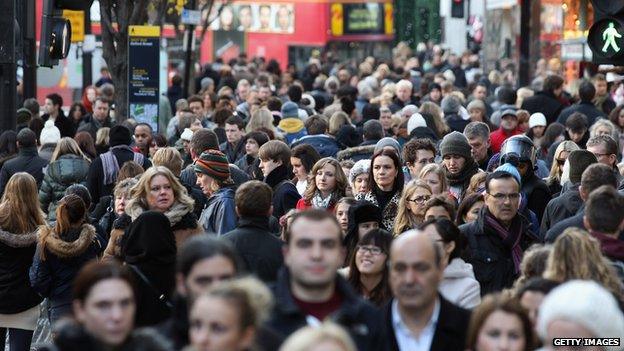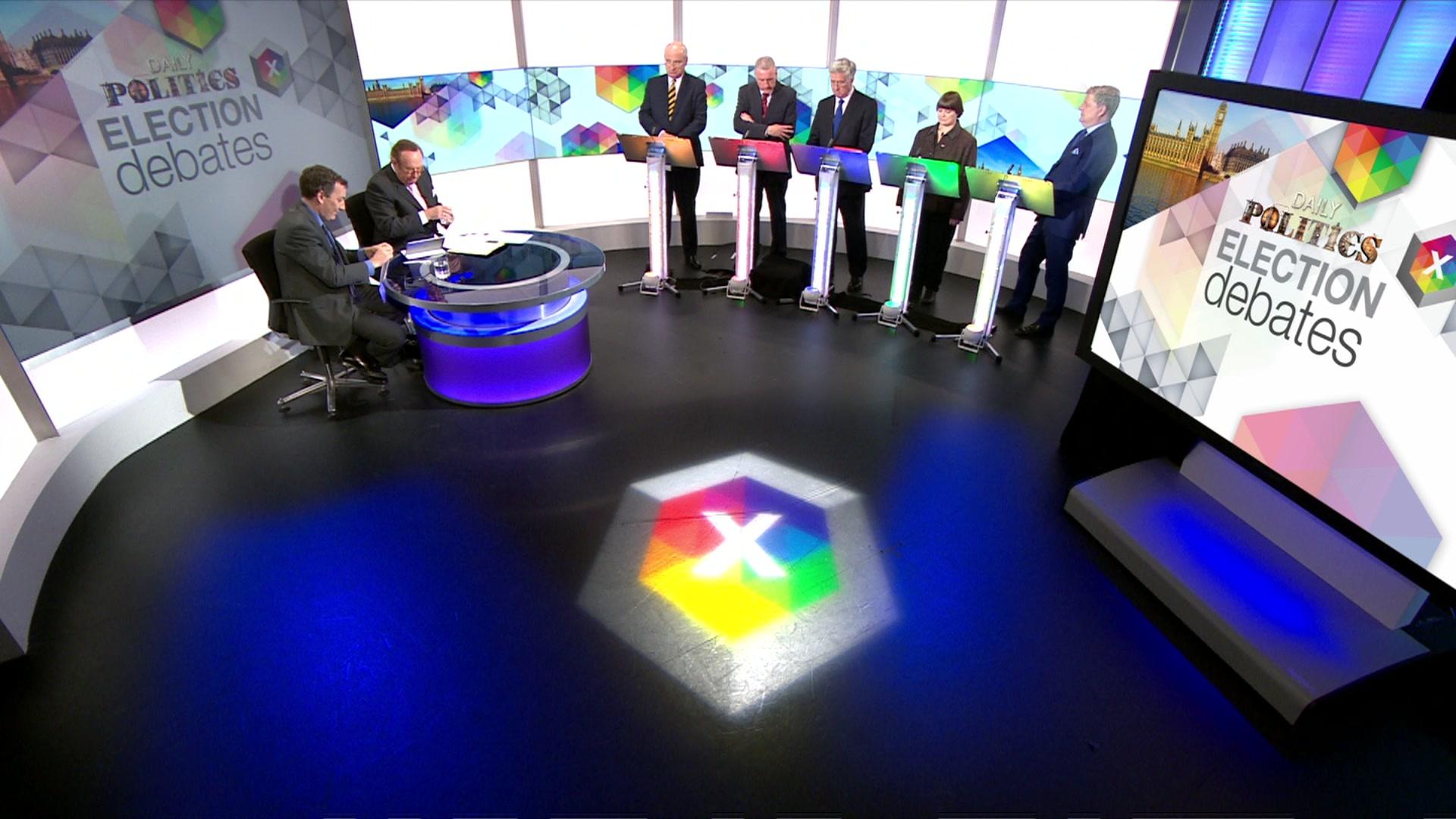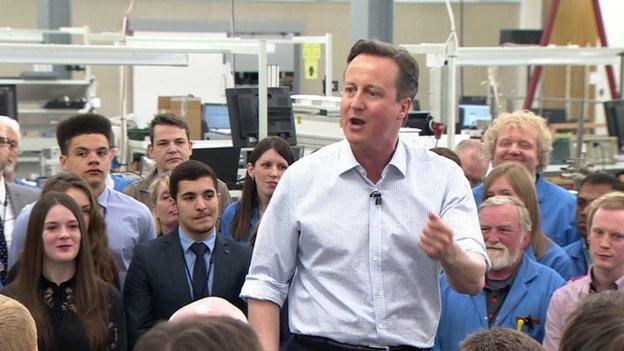IFS: Households can expect lower incomes, whoever wins the election
- Published

Most people face tax rises or benefit cuts after the election
In a withering analysis of the major parties' plans, the Institute for Fiscal Studies (IFS) has concluded that households can expect lower incomes, whoever wins the election.
The think-tank said that, on average, most people will see tax and benefit changes which will reduce their income.
If the Tories win, and implement £12bn of social security cuts, they will need to cut benefits by 10%, the IFS said.
Labour's plans for a 10% tax band were dismissed as pointless.
The IFS accuses all the parties of planning to extract a huge amount of money by clamping down on tax avoidance -"mysteriously missed" in all previous clampdowns.
And all of the parties have "a shared lack of any attempt to paint a coherent strategy on tax reform".
Tax plans
Both the Conservatives and Liberal Democrats plan to increase the personal allowance - the amount one can earn before paying income tax - to £12,500 by the end of the next parliament.
But the IFS said that would not help the 44% of people who now pay no tax.
Instead it said the main beneficiaries would be those in "the middle and upper middle parts of the income distribution".
Under Labour and the Liberal Democrats, the number of higher rate tax-payers would increase from 4.9m now to 6.5m by 2020/21.
But Labour's plans to introduce a 10% starting rate for income tax also came in for criticism.
The IFS said this change would be worth a "princely" 50 pence a week to most tax payers.
"There is no point in introducing such a band," it said.
Mansion tax
Both Labour and the Liberal Democrats plan to introduce a mansion tax on properties worth more than £2m.
But the IFS said it would be much more sensible to let the council tax take care of wealth in the housing market.
"Setting up an entirely separate tax is unnecessarily complicated", it claimed.
It said that Labour's plan to raise £1.2bn from the tax annually would mean that owners of properties worth more than £3m would have to pay around £16,600 a year each.
"Setting a revenue target is not a sensible way to make policy," it concluded.
On tax avoidance and evasion, the Conservatives plan to raise £4.6bn by further clamp-downs , Labour plans to raise £6.7bn, and the Liberal Democrats £9.7bn.
"Yet none of the parties has proposed specific measures that would increase revenues by these sorts of amounts."
Welfare reforms
Conservative plans to cut £12bn from the £220bn annual social security budget are also criticised.
The IFS said they were £10bn short of that target in terms of any specific proposals.
If, as the Tories have suggested, pensioner benefits are to be protected, the cuts would have to be "extremely challenging".
They might need to cut child benefit, disability benefits or housing benefits by as much as 10%.
But the other parties have no better plans either, said the IFS.
Labour's pledge to cap up-rating of child benefit by 1% a year would bring zero savings in the first year, and "likely" zero in the second year as well.
All the parties "share a lack of willingness to be clear about the details" of forth-coming changes, the IFS said.
- Published28 April 2015

- Published28 April 2015

- Published23 April 2015
